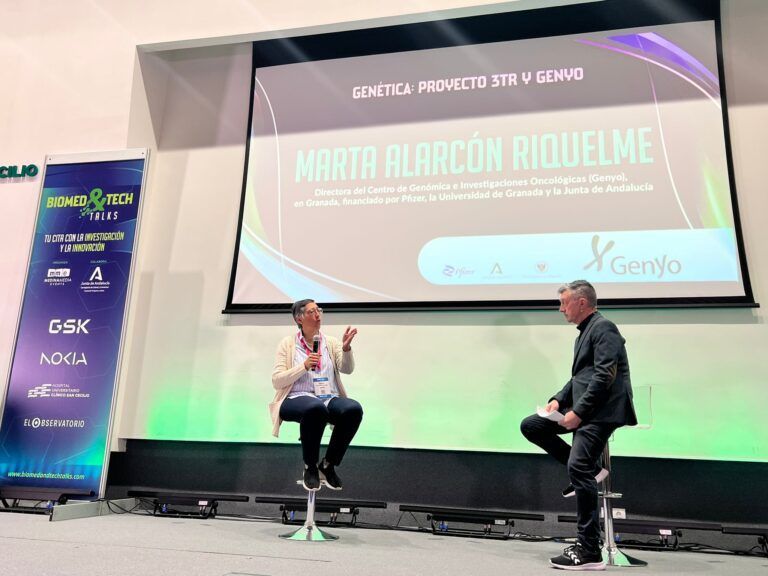-
Marta Alarcón Riquelme, director of the Genomics and Oncology Research Center (GENYO) in Granada also reveals that “around 30-40% of patients have a poor response to existing treatments”.
-
“50% of the clinical trials carried out in Spain are taking place in Andalusia”, says Blanca Quijano, Clinical Coordinator of the Andalusian Network for the Design and Translation of Advanced Therapies of the Progreso y Salud Foundation.
-
María José Sánchez Pérez, Scientific Director of ibs.GRANADA (Institute for Biosanitary Research) and professor at the Andalusian School of Public Health, has highlighted the value of public health and highlighted “Andalusia as a pioneer in the personalized and precision medicine plan”.
-
Javier Montero, Director of the Technical Office of Public Procurement of Health Innovation, has stated that public-private collaboration had a “positive turning point with the Covid pandemic”.
-
On this day, the “Manifesto against Health Disinformation” was presented at the first International Meeting of Health Informers, promoted by the National Association of Health Informers (ANIS).
The first edition of ‘BioMed & Tech Talks’: Your appointment with research and innovation, has turned Granada into the epicenter of Biomedicine and Biotechnology. The Hospital Clínico Universitario San Cecilio, located in the Granada Health Technology Park, hosted this Tuesday the second day of this new independent, transversal, international and multidisciplinary event that will run until Thursday, April 11, coinciding with World Health Week.
“30-40% of patients have a poor response to existing treatments.”
This second day was attended by Dr. and researcher Marta Alarcón Riquelme, director of the Genomics and Oncology Research Center (GENYO) in Granada, where she develops and heads the ‘TR3 Project’, the largest immunology project of the Innovative Medicines Initiative 2 (IMI2) with a budget of 80 million euros, a “European research project to improve the response to treatment in autoimmune, inflammatory and allergic diseases”.
According to the Mexican-American researcher, “around 30-40% of patients have a poor response to existing treatments”, so her work consists of finding the reasons why a patient does not respond to a given treatment “using a series of multi-omics technologies”. One of the main focuses of his work within the GENYO Center is to determine “whether patients with different diseases can use the same treatment regardless of clinical diagnosis” because they share similar pathogenic pathways. “Early detection of diseases is very important to be able to find markers that indicate that a person may develop a disease” in the future.
Towards a collaborative R&D+i ecosystem
One of the focuses of this conference was public-private collaboration in which Javier Montero, Director of the Technical Office of Public Procurement of Health Innovation; Pablo Hervás, Deputy Director of the Technology Transfer Office of the Andalusian Public Health System (SSPA); and Jesús Herrera García, Healthcare System Partner at Roche Farma, discussed an area in which there was a “turning point with the Covid pandemic”, in the words of Montero.
“Covid put the patient at the center, which is what is really important. It’s not about selling more, but about curing more,” stressed Jesús Herrera, as representative of Roche Farma, from the point of view of private enterprise, while Pablo Hervás argued that it was necessary to go a step further in this area to “move from talking about public-private collaboration to talking about a collaborative R&D+i ecosystem”. Another interesting concept that emerged in this block was that of the liquid hospital, understood as the commitment to “offer healthcare where the patient is” and which could become a reality in less than 20 years.
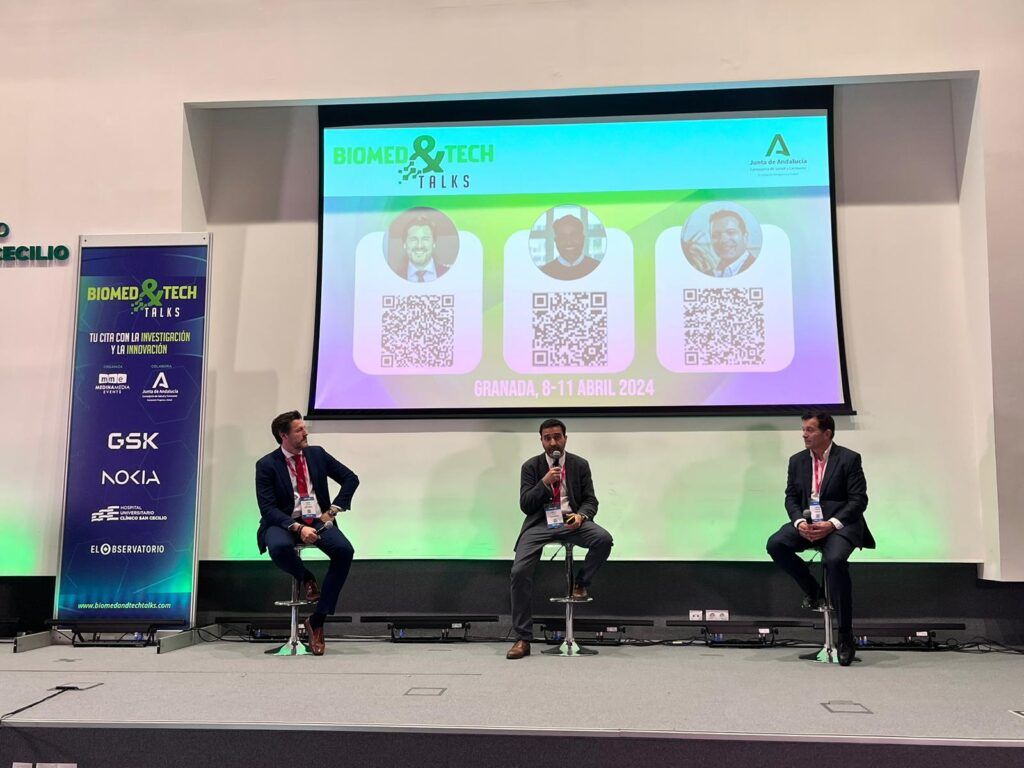
50% of clinical trials in Spain are carried out in Andalusia
Manuel Reyes, Managing Director of the Hospital Clínico San Cecilio de Granada, welcomed the attendees to this second day to highlight the work carried out at the hospital with a clear idea: “Innovation or decadence, there is no middle ground”.
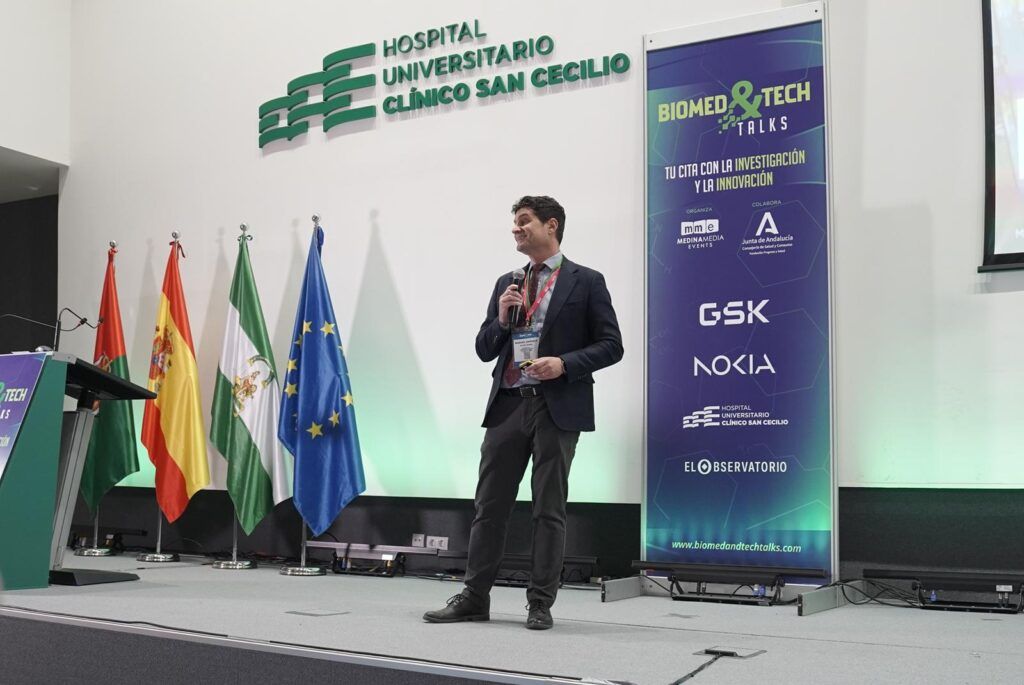
Andalusia is one of the most important communities at national level in the healthcare sector. A pioneering region in clinical research into advanced therapies, as stated by Blanca Quijano, Clinical Coordinator of the Andalusian Network for the Design and Translation of Advanced Therapies of the Progreso y Salud Foundation, who pointed out that “50% of the clinical trials carried out in Spain are taking place in Andalusia”.
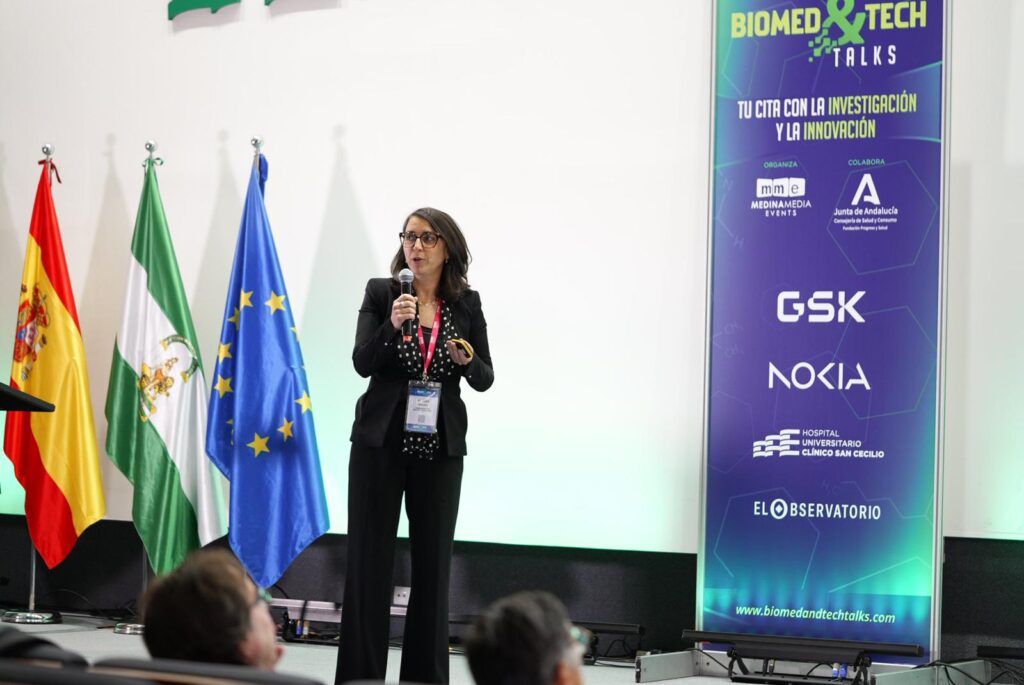
The southern region of Spain is a leader and “pioneer in both digital pathology and computational pathology”, as highlighted by José Aneiros Fernández, Head of Digital and Computational Pathology of the Regional Intercenter Pathology Service of Granada, who has addressed a future issue such as the integration of Artificial Intelligence in the health sector, which will allow “faster and more accurate diagnoses, detect new types of cancer and a personalization of the treatment of patients”, in addition to “generating new knowledge and discoveries”.
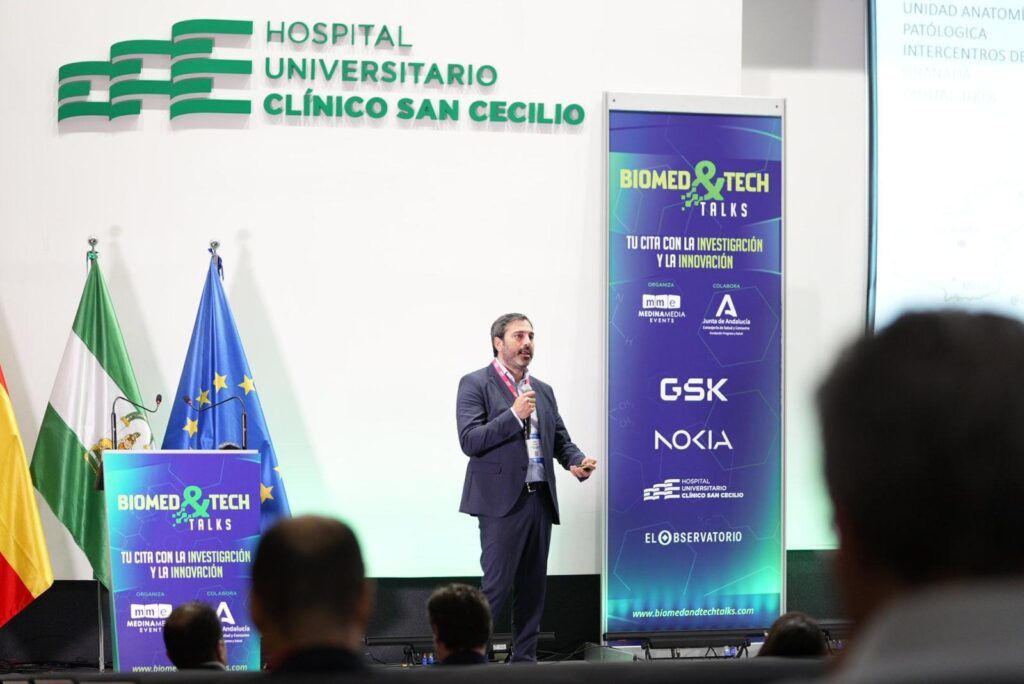
Andalusia, pioneer in personalized and precision medicine plan
María José Sánchez Pérez, Scientific Director of ibs.GRANADA and professor at the Andalusian School of Public Health, highlighted the value of personalized and precision medicine from the public health point of view, highlighting “Andalusia as a pioneer in the personalized and precision medicine plan”. In addition, the ibs.Granada representative explained the lines of work of the ISCIII IMPaCT Cohort, an “epidemiological research project to understand and improve the health of the Spanish population” which has a “population base of 200,000 participants nationwide, healthy people at risk of developing diseases to try to deepen our knowledge of them”.
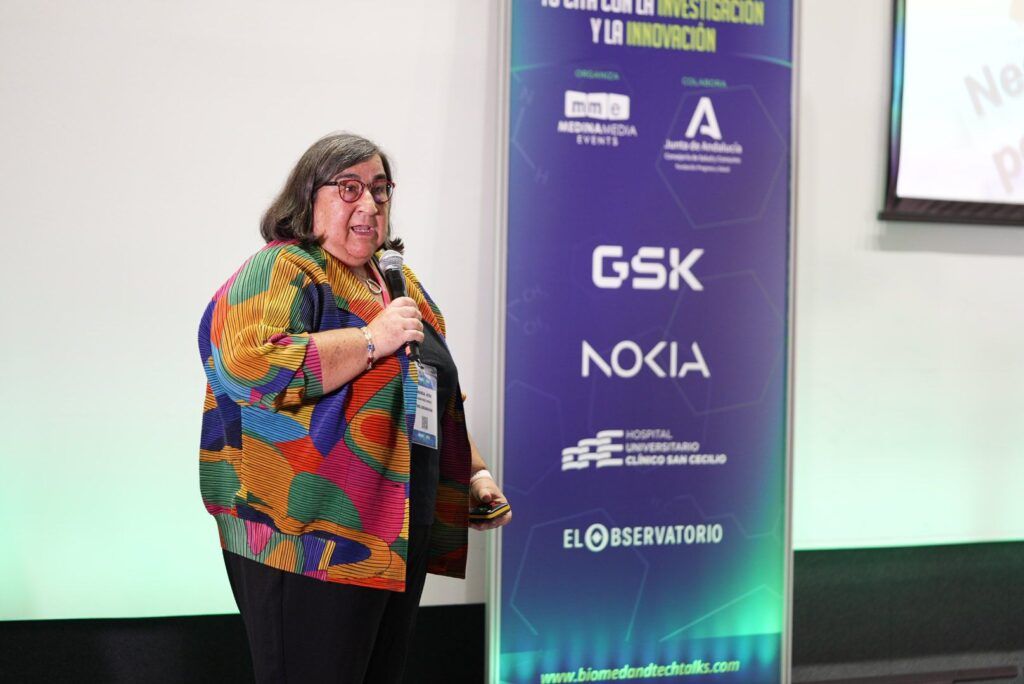
Patient confidence in new technologies
For his part, Armando Romanos, director of IAVANTE of the Progreso y Salud Foundation, advocated “opening windows to look at a digital future that is already here” in a context of technological revolution that helps patients to feel confident. He also pointed out that the trend of uncertainty in the face of new technologies is changing, since “the vast majority of patients feel comfortable with being attended by a professional with Artificial Intelligence assistance”.
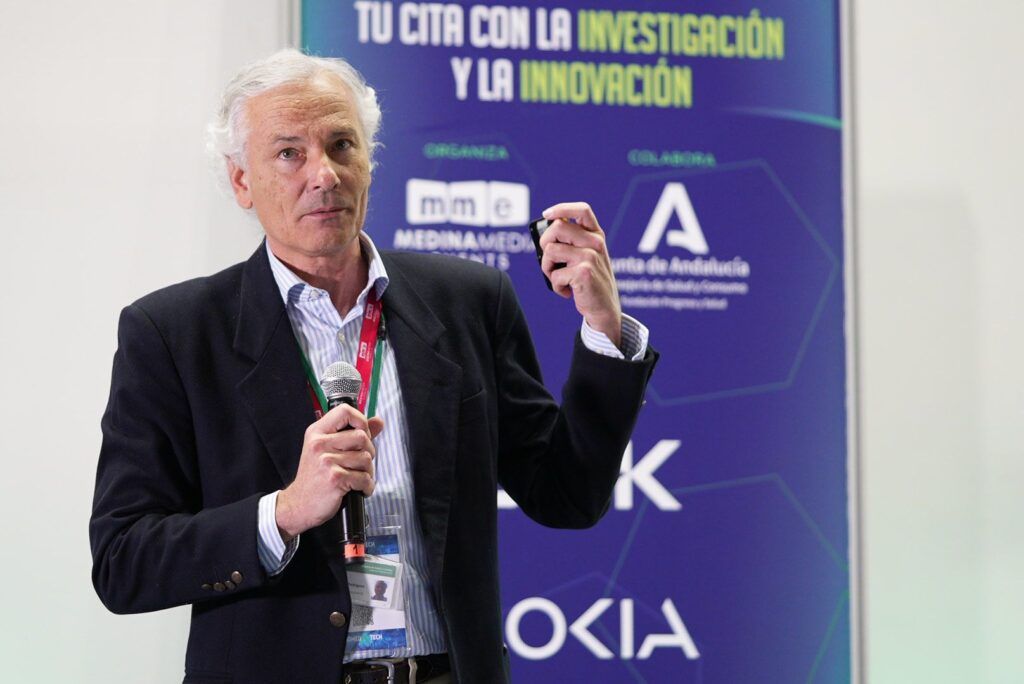
Meanwhile, José Manuel Puerta, Scientific Director of the Andalusian Public Health BIOBANK, spoke of the importance of this bank of biological samples of Andalusian human origin used to “offer the largest and best biological samples for research and teaching” at the regional level. The BIOBANCO closed the year 2023 with 370 active applications, more than 50,000 samples registered, 30,000 bioresources distributed per year, 350 students trained and more than 3,100 participants.
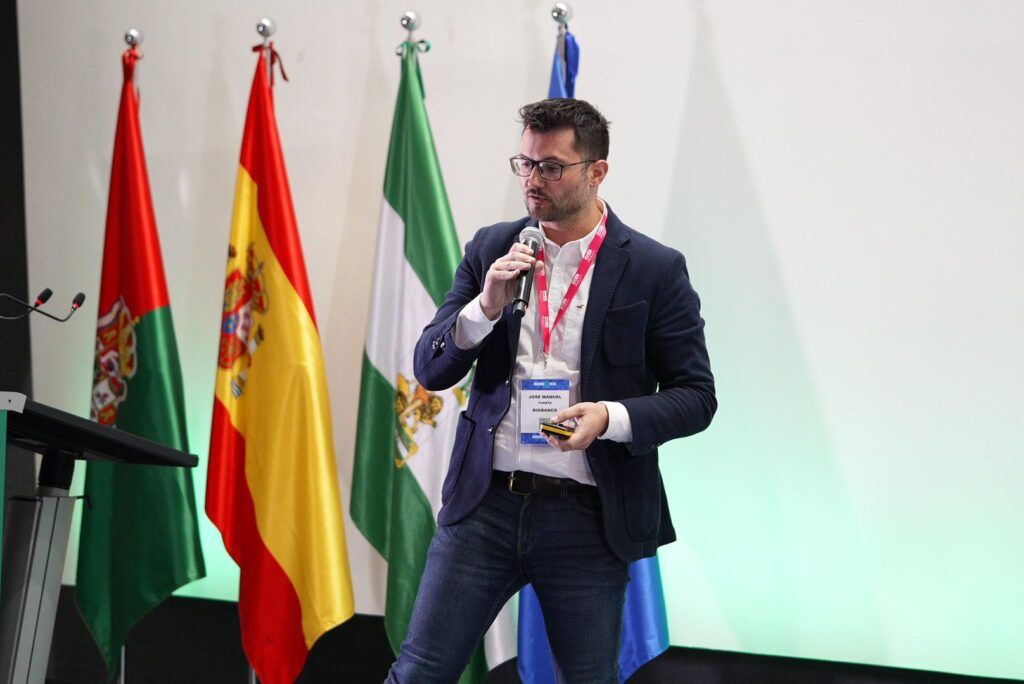
3D bioprinting to create prostheses
Manuel Figueruela, CEO of Regemat 3D, a company from Granada, has been in charge of bringing the attendees closer to everything related to biotechnology through the work of this company dedicated to the development of prostheses of all kinds through 3D bioprinting that “marks a before and after in the reconstruction of tissues in humans” since the idea was born in 2015. Its most ambitious project for the not-so-distant future is the work with bioreactors that allow “reproducing in-vitro a 3D bioprinting”.
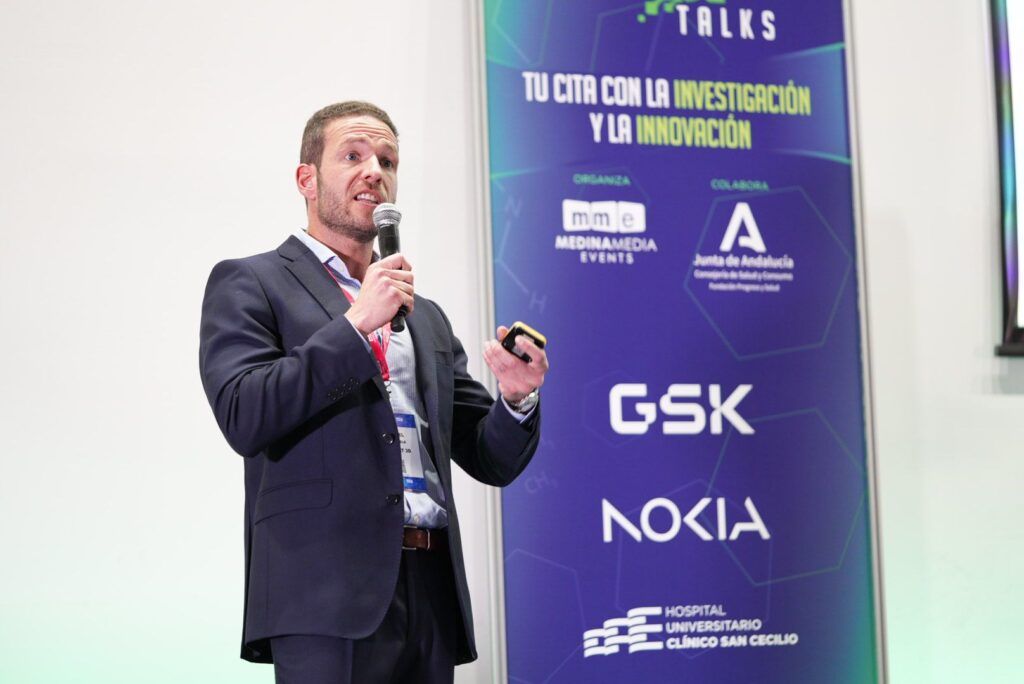
This day brought Boston and Andalusia together again, with the participation of Nancy Levy, strategic business development, marketing and commercialization consultant and director of Boston Landing, who for the past 15 years has been working with small and medium-sized companies helping them to think about their strategies to help people move forward: “A goal without a plan is just a wish,” said Nancy Levy, who argued that “the future is the main concern of investors” and listed some of the keys to success for any company.
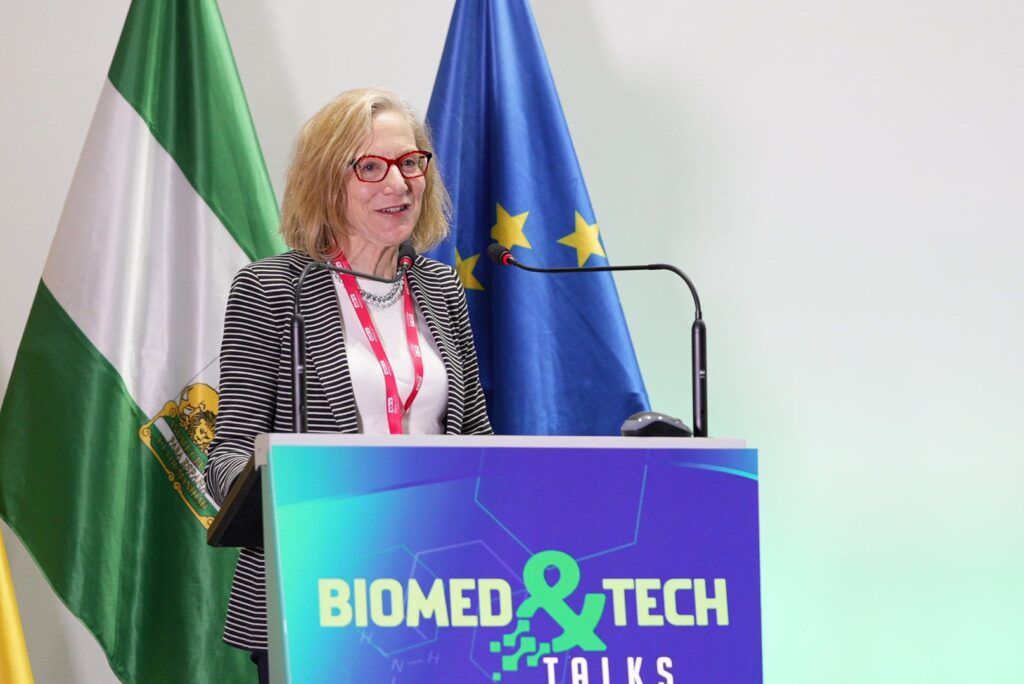
The Business Agency for Economic Transformation and Development of the Andalusian Regional Government (Andalucía TRADE) has organized a meeting with Andalusian companies.
Granada Manifesto’ against health misinformation launched
To round off the day, the National Association of Health Informers (ANIS) took advantage of this new BM&TTalks framework to hold, on its 30th anniversary, the first international meeting with directors of national and international health and science communication associations – from the United States, Latin America and Europe – after which a manifesto of a strategy to fight against disinformation was presented. Graziella Almendral, president of the association, correspondent in Spain for Internews Network and contributor to La Sexta, was the architect of this ‘Manifesto Against Disinformation in Health’, for whom “there is a very big problem of disinformation, which is growing and has an impact on health like any other disease”.
With this manifesto, which is intended to be extended to the whole world, they want “it to be recognized that this infodemic is a global problem that affects everyone”, in the words of Megan Miller, head of Health at InterNews Network. For her part, Fabiola Torres, director and founder of ‘Salud con Lupa’, considered that “misinformation is a real public health problem that can mean life or death”. The same perspective was offered by Lucas Sanchez, vice-president of the Spanish Association of Science Communicators (AEC2), director of Scienseed and contributor to El País, who advocated “anticipating misinformation”, since “it is fine to deny hoaxes, but it works better to give truthful information first”. In this context, he considered the “fundamental role of hospitals and research centers in providing rigorous and attractive information”.
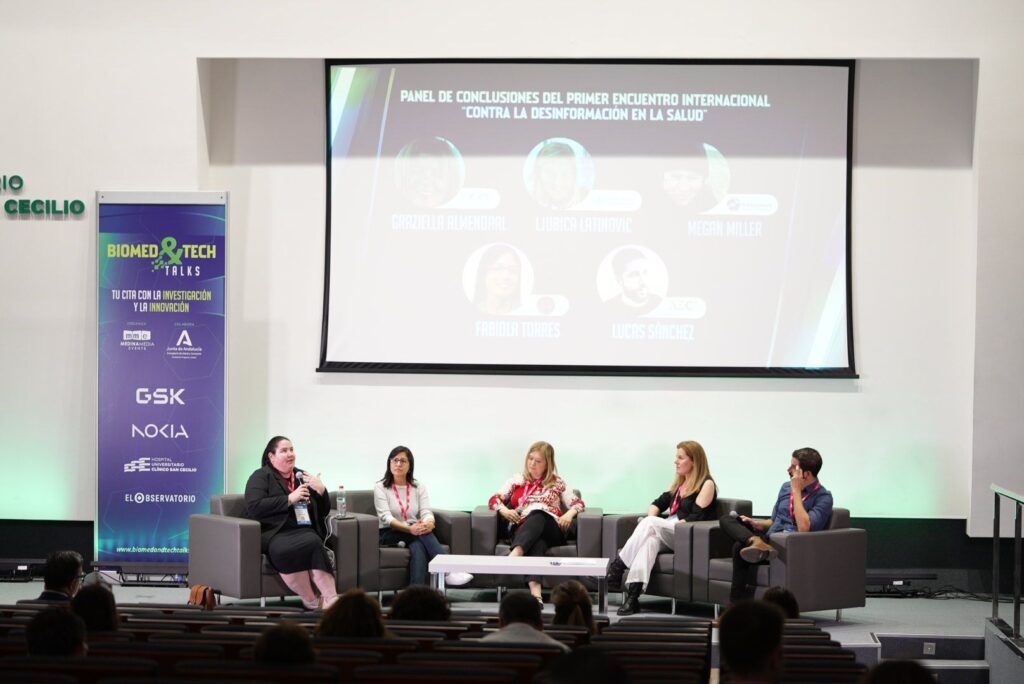
The first edition of ‘BioMed & Tech Talks’ is having an important media impact, with coverage by media such as Telecinco, Canal Sur (News and the programs Andalucía Directo and ConCiencia), Europa Press, El Ideal, Granada Hoy or Granada Digital, among others.
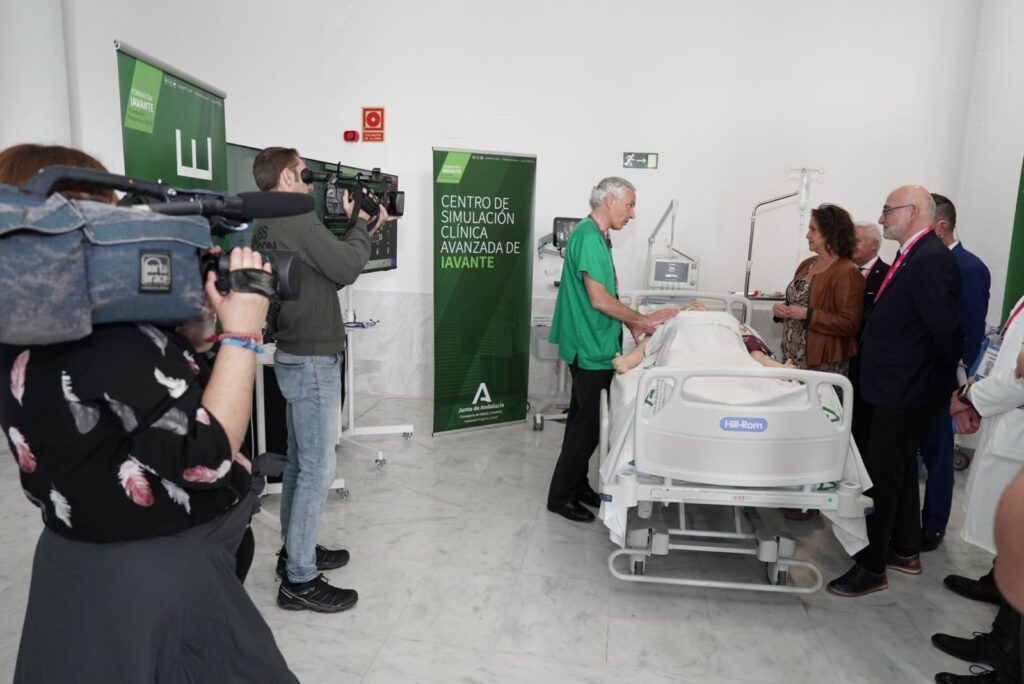

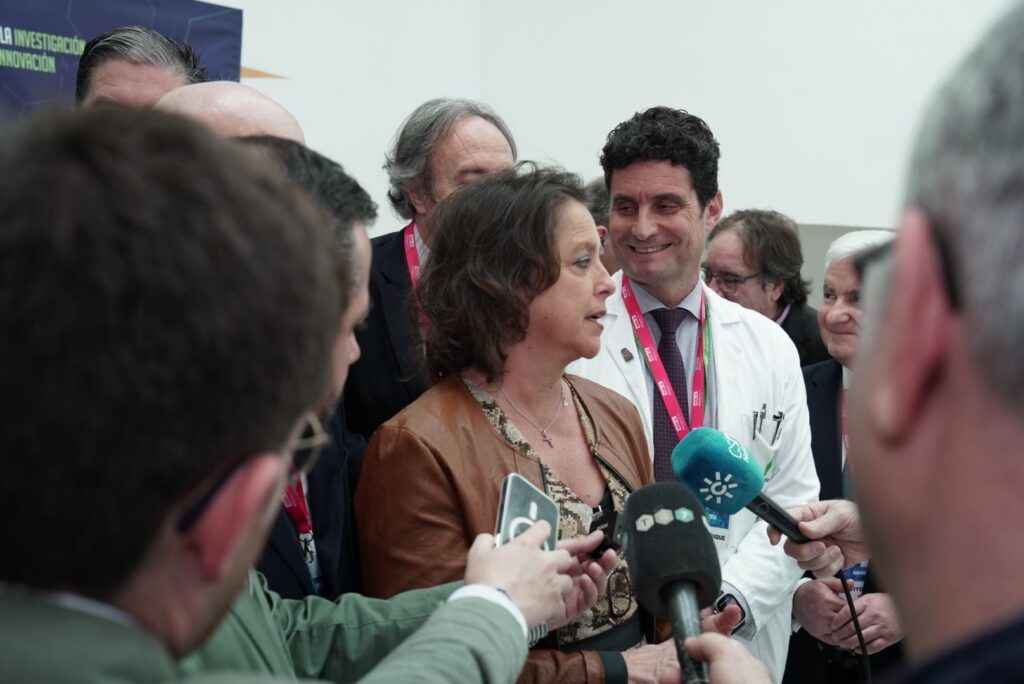
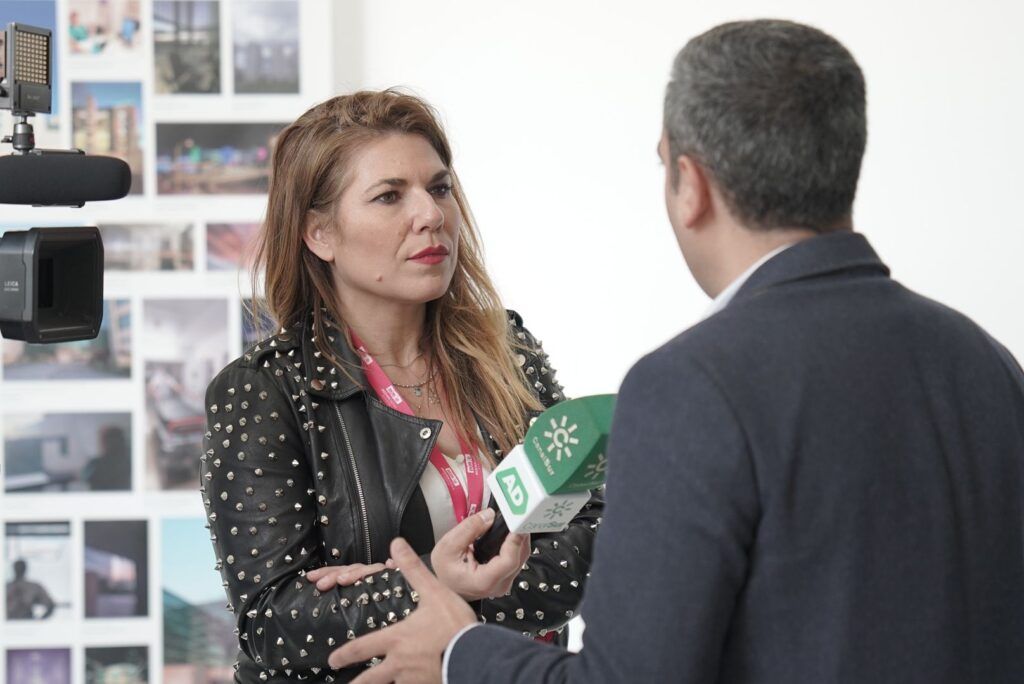
BioMed & Tech Talks’ has concluded its two face-to-face sessions from the Hospital Clínico Universitario San Cecilio in Granada to give way to the two virtual sessions, which will be held on Wednesday 10 and Thursday 11 and can be followed through ‘The Observatory’, the digital platform of Medina Media Events.

All the presentations can be viewed through ‘The Observatory’, the digital platform of Medina Media Events, where all the interventions will be available 24/365 for on-demand consumption, like Netflix, but free of charge. Tomorrow, Wednesday, April 10, will deal with relevant topics such as research into natural products as a source of new drugs or innovation and technology as elements of competitive change in healthcare.
The first edition of ‘BioMed & Tech Talks’ is organized by Medina Media Events in collaboration with the Fundación Progreso y Salud of the Consejería de Salud y Consumo de la Junta de Andalucía and is supported by GSK, Nokia, El Observatorio and the Hospital Clínico Universitario San Cecilio. Also collaborating are Andalucía TRADE, ASEBIO, Wellness Forum and Granada Convention Bureau, among others.
